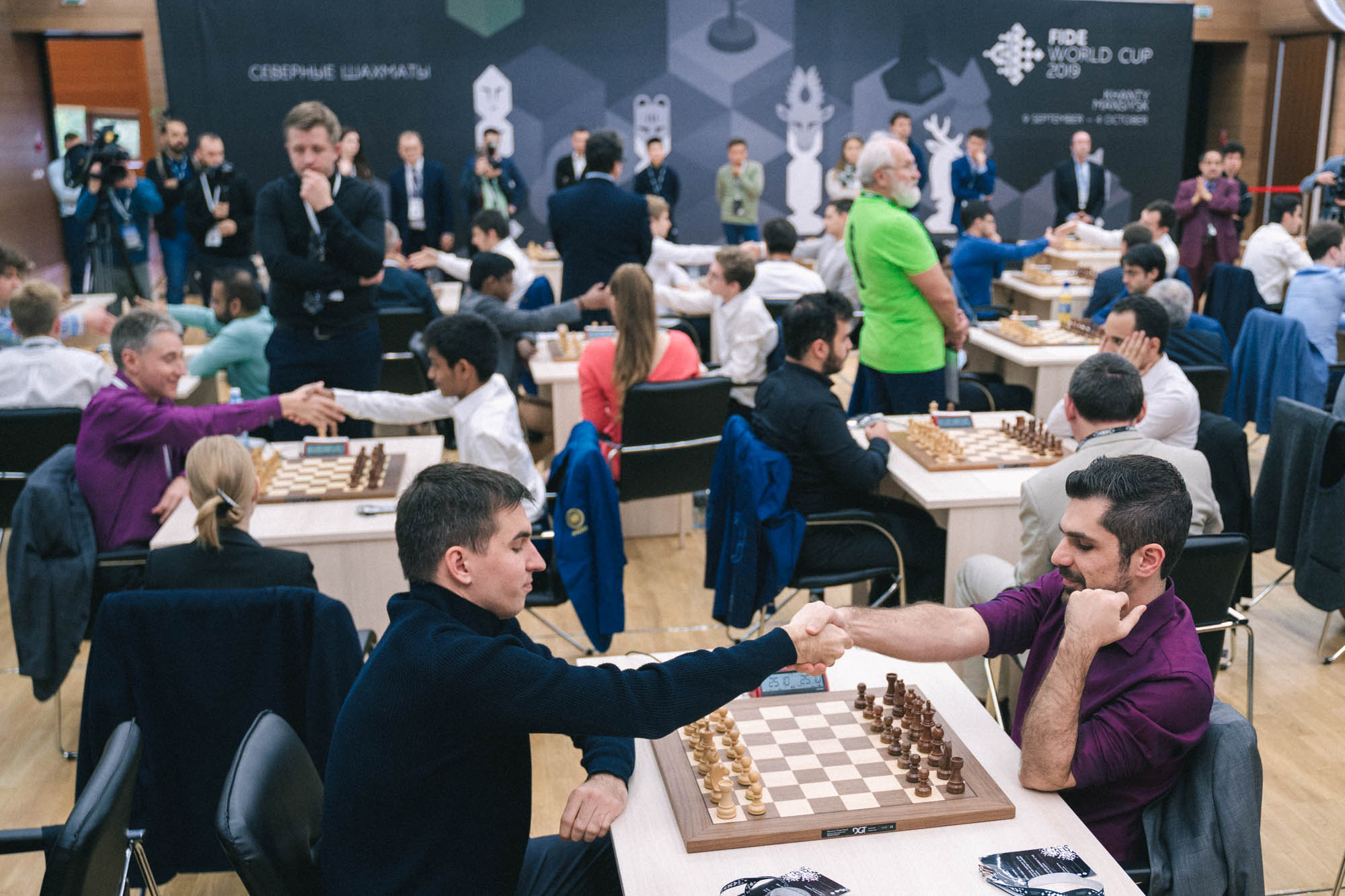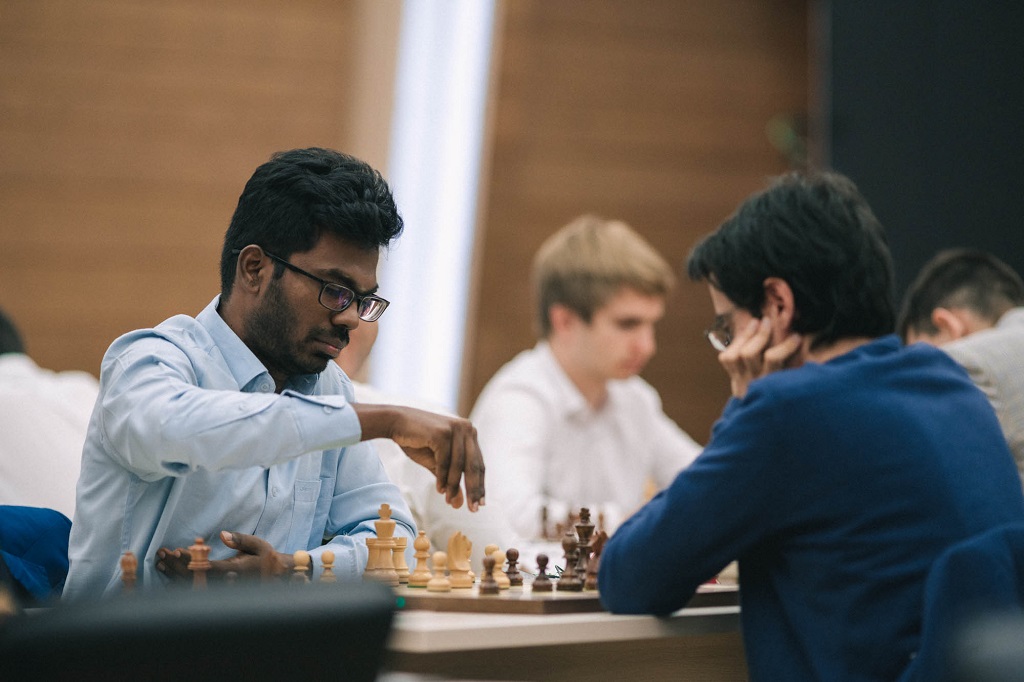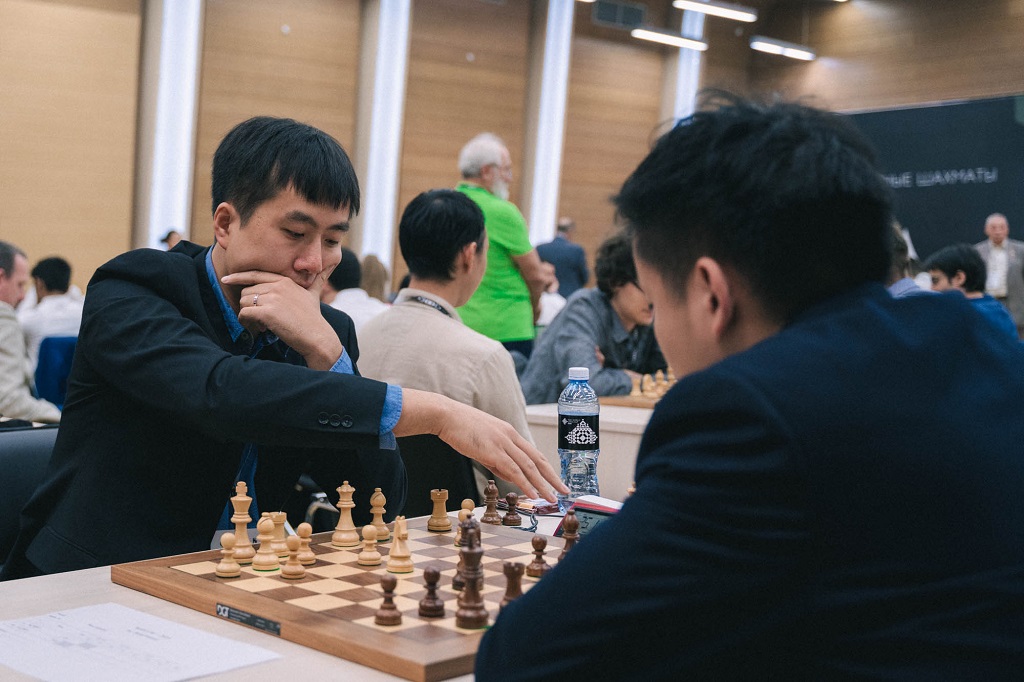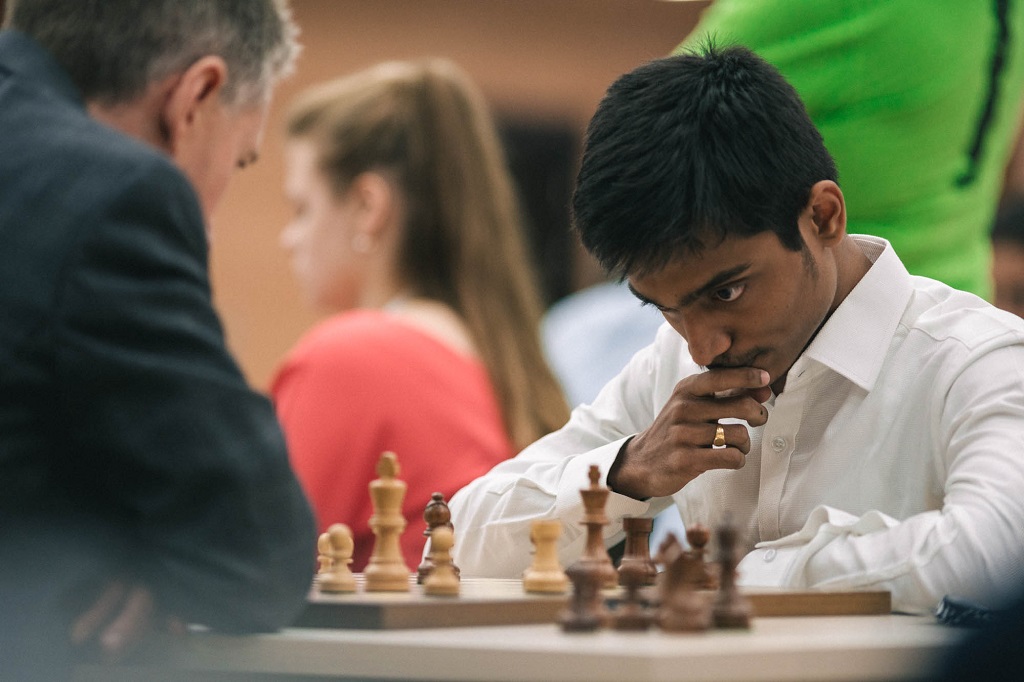


ChessBase 17 - Mega package - Edition 2024
It is the program of choice for anyone who loves the game and wants to know more about it. Start your personal success story with ChessBase and enjoy the game even more.
The first round of the World Cup is over, which means the biggest cut-off of the tournament has already taken place. Sixty-four players were nominal favourites as they faced lower-rated opposition (sixty-three, in fact, as Sergei Movsesian and Grigoriy Oparin had the same rating) and fifteen of them were left out of contention in round one. More notably, out of the thirty-two highest rated, i.e. the top quarter of the bracket, four players were upset in the first round: Radoslaw Wojtaszek, David Navara, Bu Xiangzhi and Sam Shankland.
Some more stats from round one:
The youngest player to reach round two is Nihal Sarin, as Nodirbek Abdusattorov was knocked out by Maxim Matlakov, while the oldest contender is Boris Gelfand, who eliminated 24-year-old Lu Shanglei from China.
Being ready to face rapid tiebreakers surely is part of the players' preparation before travelling to the World Cup, and perhaps the 25-minute games stage is the last instance in which handling your nerves is not the main decider of the match-ups. Players like Hikaru Nakamura, Sanan Sjugirov and Dmitry Andreikin, amongst others, got clear victories in this stage.
Tamir Nabaty, who came from losing game two with the white pieces against Sethuraman, was facing a tough psychological situation as we pointed out in our previous report. Nabaty won the first rapid game — with Black again — and nicely finished off his opponent in the next encounter:
The Grand Prix Attack is one of White’s most enterprising weapons against the Sicilian Defence, and a favourite among club players and Grandmasters alike. This is an opening that must be treated with both caution and respect. Over the past few years Grandmaster Gawain Jones, arguably the world’s leading expert on the variation, has used the Grand Prix Attack to defeat a number of world class opponents, which demonstrates that underestimating its potential can cause casualties even at the highest level. This DVD will provide you with a comprehensive repertoire that explores all of Black’s ideas against the Grand Prix set up.
34.g4 was a natural way to continue with the attack, but Nabaty's 34.♘xe6 is more lethal. Black captured the knight with 34...♚xh5 and the Israeli grandmaster gave up yet another piece in order to give mate: 35.♘g7+ ♝xg7 36.g4+ fxg4 37.♕h2#.
A nice way to get a ticket to round two.

Sethuraman could not bounce back again against Tamir Nabaty | Photo: FIDE
Meanwhile, the youngest player in the field, 14-year-old Nodirbek Abdusattorov, also fell prey to a king hunt in his second rapid game against Maxim Matlakov:
On this DVD, Grandmaster and worldrenowned commentator Maurice Ashley reviews some of the most interesting patterns with examples meant to educate and entertain.
Black is doomed. Instead of immediately capturing the bishop, Matlakov spent a minute and a half calculating a winning sequence (one of many) and duly showed it on the board (you can follow the moves and try your own variations on the board above): 37.d6+ ♚xd6 38.♕f8+ ♚c7 39.♕xg7+ ♚b6 40.♕f6+ ♚a5 41.♕d8+ ♚b4 42.♕f8+ ♚c4 43.♕c8+ and Black resigned.
.jpg)
More than a promising talent — Nodirbek Abdusattorov | Photo: FIDE
Seven match-ups were decided on this phase. Vladimir Fedoseev defeated Ganguly, Wang Hao eliminated Aleksei Pridorozhni, Yu Yangyi finally got the better of Ehsan Ghaem Maghami (the latter surprisingly tied the score in game two of the classical stage), Boris Gelfand beat Lu Shanglei and Anton Korobov took advantage of an inaccuracy by Abhijeet Gupta to take him out of contention — Gupta took it in stride.
Yes, we are missing two match-ups in the list above. First, let us take a look at a Chinese duel, in which Xu Xiangyu eliminated his higher-rated compatriot Bu Xiangzhi — as pointed out by user "thesavage4" in the comments section of this article, trying to say the names of these two five times in a row can be a real challenge. Bu was actually better in the first 10'+10" encounter, but his opponent ended up on top after a complex tactical skirmish:
Master Class Vol.11: Vladimir Kramnik
This DVD allows you to learn from the example of one of the best players in the history of chess and from the explanations of the authors (Pelletier, Marin, Müller and Reeh) how to successfully organise your games strategically, consequently how to keep y
Bu Xiangzhi made the last mistake with 30.b5 — instead of 30.gxh4 — as after 30...♛g6 capturing the knight is not advisable any more. The game continued 31.♕e5 ♞f3+ 32.♖xf3 and Xu Xiangyu went on to convert his material edge into a memorable win.

Bu Xiangzhi eliminated Magnus Carlsen in the previous World Cup | Photo: FIDE
The strangest occurrence of the day was seen in Sam Shankland vs Eltaj Safarli. After four draws in classical and rapid, Safarli had won their fifth encounter. Only needing a draw with Black, he missed an easy tactic though:
The Azeri played 27...♜a6 and eventually got a 62-move draw to go through, but in the diagrammed position he could have gone for the simple 27...♜xd6, using the deadly pin on the long diagonal. Even top players miss simple tactical tricks!
Kacper Piorun (Poland, 2660) and Nijat Abasov (Azerbaijan, 2632) drew their two classical encounters and exchanged blows in both rapid phases of the tiebreaks. After splitting the point in the first blitz game, Abasov eliminated his Polish rival in a fine strategic effort with the black pieces.
The storyline in Michael Adams (England, 2694) vs Aravindh (India, 2609) was rather different, as the players drew their first seven encounters and seemed en route to an Armageddon...until Adams miscalculated in an endgame:
Power Play 15 - Practical Pawn Endgames
Based on his own playing experience, Grandmaster Daniel King reveals what is essential knowledge, saving you time in your studies. In the first section of the DVD he takes you through typical motifs and themes. In the second section he tests your knowledge with typical scenarios from actual games.
Video: 4 hours.
45...♞e6 gives way to 46.♘g5+ ♞xg5 47.♖xg5 and White can later force a rook trade in order to get a superior pawn ending.
The white king will inevitably penetrate Black's camp. The game continued 54.c5 55.♔d2 ♚e6 56.♔e3 ♚d5 57.♔d3 c4+ 58.♔e3 ♚c5 59.♔e2 ♚c6 60.♔f3 ♚c5 61.♔e3 ♚d5 62.e6 etcetera, and the young Indian got his pass to the next round.

Aravindh Chithambaram got the better of none other than Mickey Adams | Photo: FIDE
Commentary by GMs Evgeny Miroshnichenko and Alex Yermolinsky